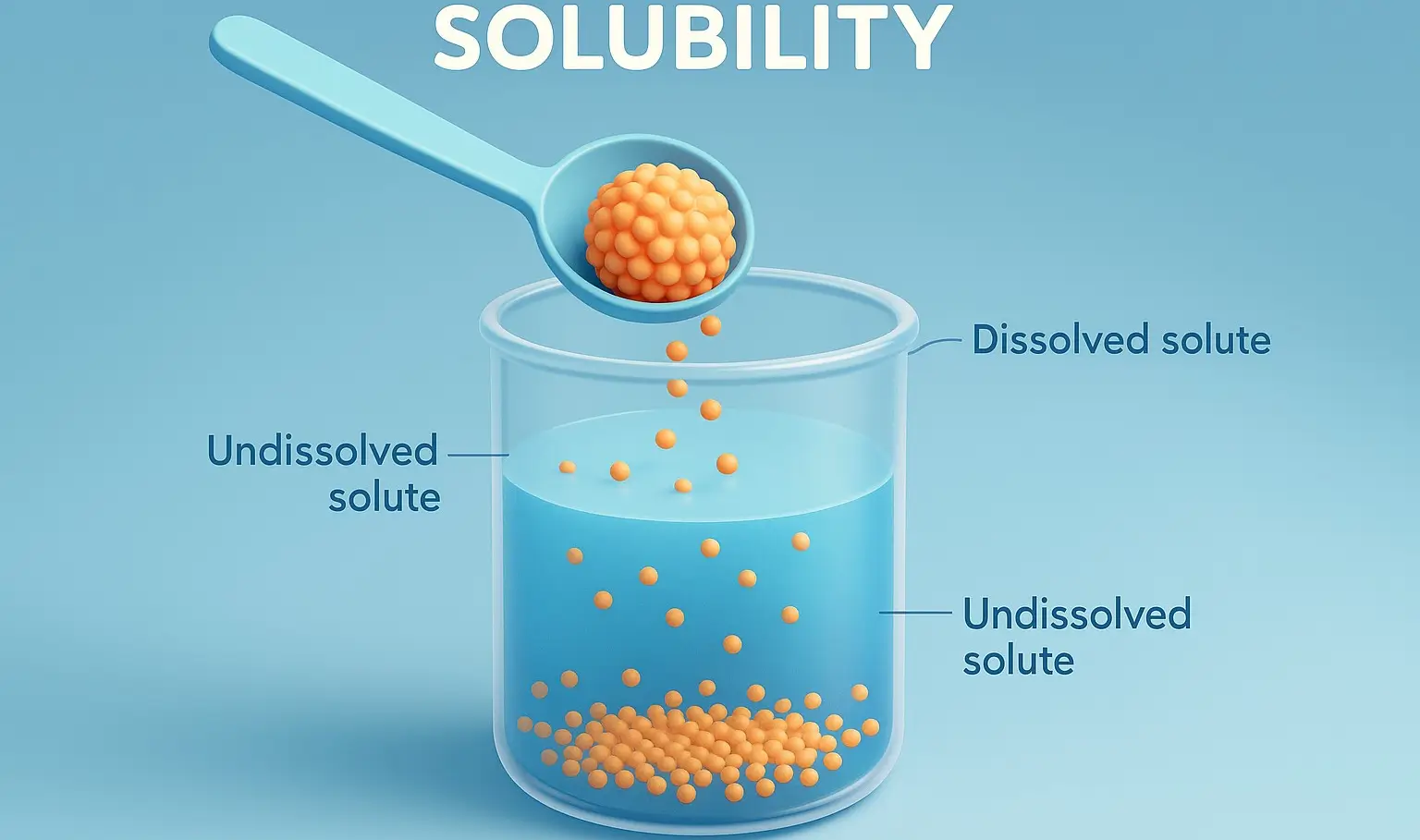Solubility Definition:
- Solubility is the ability of a drug to dissolve in a given solvent (e.g., water, lipids, organic solvents).
- Drugs must dissolve in biological fluids before they can be absorbed and exert their effect.
Importance in Drug Action:
- Oral Bioavailability: Poorly soluble drugs have lower absorption and bioavailability.
- Drug Formulation: It determines the formulation (tablets, suspensions, injections).
- Rate of Absorption: More soluble drugs are absorbed faster.
- Excretion: Water-soluble drugs are excreted more easily via the kidneys.
Factors Affecting Solubility:
- Polarity: Highly polar drugs dissolve well in water but poorly in lipids.
- pH Dependence: Weak acids dissolve better in alkaline media, weak bases in acidic media.
- Particle Size: Smaller particles dissolve faster (used in nanotechnology formulations).
- Salt Formation: Drugs are often formulated as salts (e.g., penicillin sodium) to increase it.
Examples:
- Lipophilic drugs (e.g., diazepam) have poor water but good lipid, leading to high brain penetration.
- Hydrophilic drugs (e.g., atenolol) dissolve well in water but have poor membrane permeability.
Types:
- Aqueous Solubility: Determines how well a drug can be absorbed into the bloodstream.
- Lipid Solubility: Also known as lipophilicity, which affects membrane permeability and distribution.
Click Here to Watch the Best Pharma Videos

